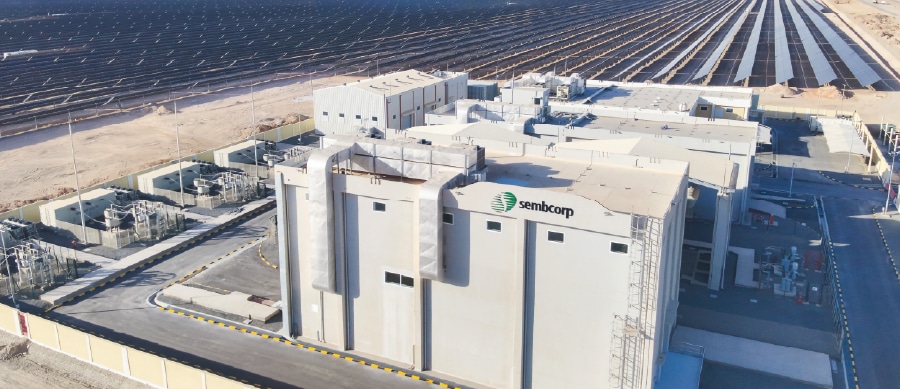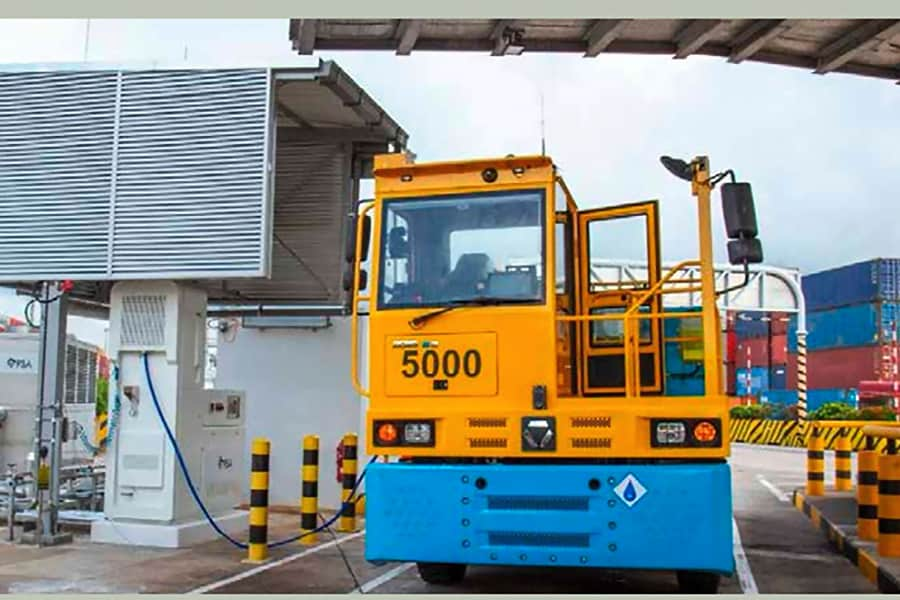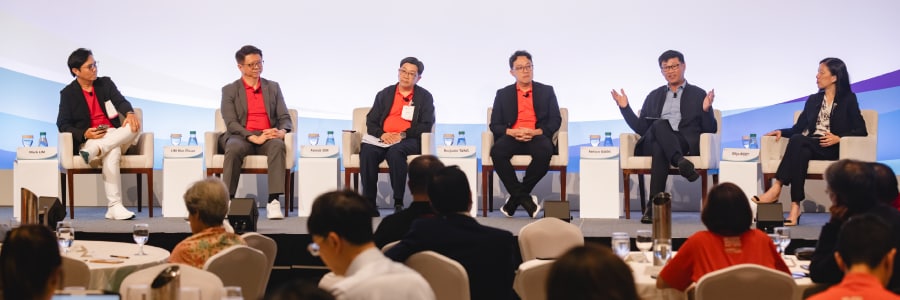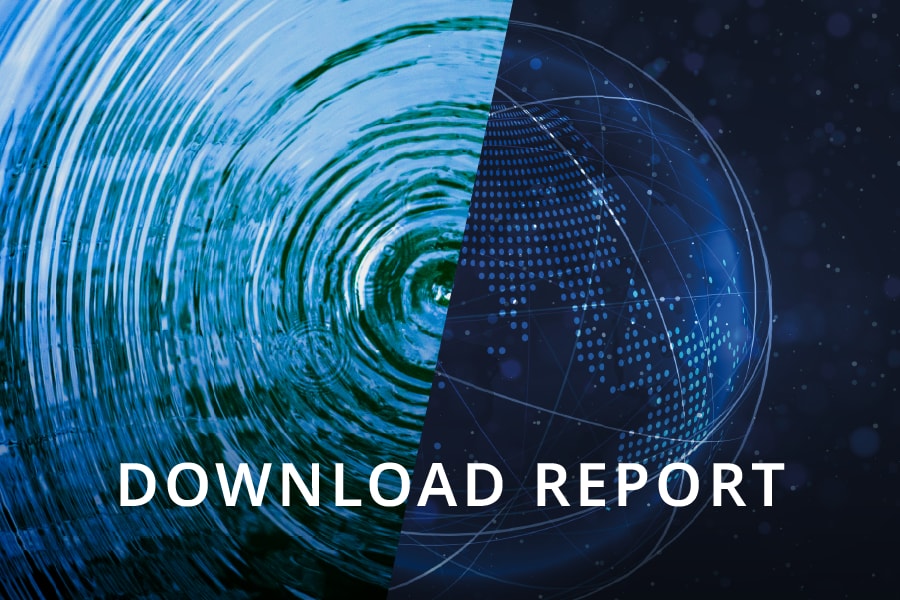Engaging Our Portfolio Companies
As an asset owner, the success of our portfolio companies underpins our own success. We view sustainability as a key lever to drive long-term portfolio resilience and value creation.
Our Engagement Philosophy
As part of our post-investment monitoring, we work to understand the environmental and social positioning as well as progress of our portfolio companies, both in terms of the products or services they provide and their operational practices.
While we do not manage their day-to-day business decisions, as an owner and shareholder, we communicate our expectations on sustainability and encourage our portfolio companies to adopt policies and practices that safeguard and enhance long-term performance, including polices and practices in ESG-related areas critical to their businesses.
We engage our portfolio companies through their boards and management teams. We add value as a shareholder by exchanging ideas, sharing best practices, and organising roundtables and networking events. Temasek values these engagements and conducts them thoughtfully on the basis of factual evidence. Ultimately, a company’s board is accountable to its shareholders for its total performance: business growth and other economic factors, as well as ESG issues.
We exercise our shareholder rights through voting at shareholder meetings. Through our vote, we express our opinion on how a company should be governed and managed, and hold its board and executives accountable for their actions, decisions, and performance.
We view voting and engagement as key levers that are essential to long-term value creation and formed a dedicated Investment Stewardship function to augment our efforts in this respect.
Engaging on ESG Matters
Our engagement with portfolio companies follows an internal prioritisation process. Taking into account the diverse range of companies in Temasek’s portfolio, we identify where we can drive the most significant impact. We consider each company’s ESG maturity, ESG relevance, and Temasek’s potential influence. Based on the results, we prioritise companies that are long-term holds and are earlier in their ESG journey, in addition to companies where we identify strong opportunities for value creation or foresee a clear pathway for ESG transformation.
We have formulated an ESG Value Creation Playbook, which guides our investment teams in identifying opportunities and driving ESG value creation. We seek to identify opportunities to engage and support our portfolio companies to uplift their ESG practices, for example, by accelerating their decarbonisation and driving growth in sustainable products and services. Where relevant, we work with the portfolio companies to establish sustainability-related key performance indicators that can form the basis for outcomes-focused approaches to compensation and financing.
Ultimately, the aim of the ESG Value Creation Playbook is to strengthen the portfolio companies’ resilience, improve competitiveness, enhance their ability to access capital, and position them for new growth opportunities.
We are encouraged by the progress of our portfolio companies in implementing sustainability strategies. One example is Country Delight, a subscription-based food essentials platform that drives impact by partnering smallholder farmers in their value chain. One of the key focus areas for the company is improving cattle healthcare practices through education and veterinary support services. This enables improved animal welfare, increased productivity and yield, and higher income. The company has also made efforts to manage the environmental impacts of its operations, with a specific focus on addressing packaging waste and improving recycling rates.
Engaging on Climate
Against the backdrop of the global transition to a net zero economy and the expected physical effects of climate change, it is in our interest to encourage our major portfolio companies to adopt effective climate change mitigation and adaptation measures.
Our engagement on climate transition with portfolio companies is informed by our Climate Transition Readiness Framework. It provides a structured methodology on the basis of which we can assess the maturity of our portfolio companies in addressing climate-related risks and opportunities. It serves as a starting point for in-depth dialogue to convey our climate expectations, which include setting a 2050 net zero ambition and interim decarbonisation targets. In addition, it serves as a source of insight on challenges and opportunities for further collaboration.
Utilising publicly available sources and information shared through ongoing engagements, we assess our portfolio companies across several dimensions. These are:
- governance and organisational competencies on climate change;
- climate transition strategy;
- capital allocation;
- scenario planning;
- risk management;
- GHG reduction targets and progress;
- advocacy and engagement;
- external verification and disclosures.
During the year, we continued our engagements with 17 major portfolio companies that constitute 91% of Total Portfolio Emissions1 for the year ended 31 March 2025. Of these 17 major portfolio companies engaged, 14 portfolio companies have set targets to achieve net zero by 2050 or earlier, up from 11 last year.
We engaged relevant members of the portfolio companies’ senior management teams, including the Chief Sustainability Officer and Chief Financial Officer, where appropriate. Initiated at the board and CEO level, these engagements provided an opportunity for us to relay our expectations for climate action and establish the foundation for regular dialogue and collaboration.
Since our initial engagement in 2023, we have seen our major portfolio companies advance in their climate transition readiness, including on climate scenario planning and integration of climate risks into their enterprise risk management processes. They also developed more in-depth climate transition plans that include both decarbonisation of value chains and development of new green revenue streams. Many of them have already tied, or are considering tying, climate-related key performance indicators to remuneration.
This year, we also laid out company-specific expectations according to each portfolio company’s maturity level. In terms of priority, we focused on understanding each portfolio company’s progress towards interim milestones and on its decarbonisation pathway to 2030. Going forward, we will continue to encourage portfolio companies to develop climate transition plans, including capital allocation plans, to provide stakeholders with greater clarity on their climate transition strategies.
1 Total Portfolio Emissions reflect the absolute emissions (Scope 1 and Scope 2) associated with our investment portfolio, expressed in tCO2e. Our investment positions in private equity funds, credit, and other assets are excluded.
Key Contributors to Total Portfolio Emissions
Singapore Airlines, Sembcorp Industries, Olam Group, PSA International, and ST Telemedia collectively contributed to approximately 82% of Total Portfolio Emissions for the year ended 31 March 2025.
Singapore Airlines (SIA) is a global company providing passenger and cargo air transportation services. As part of the hard-to-abate aviation sector, SIA faces decarbonisation challenges arising primarily from a heavy reliance on fossil fuels for its flight operations.
The SIA Group is firmly committed to achieving net zero carbon emissions by 2050 as part of its ongoing journey towards environmental sustainability across its operations. This requires multiple levers, including investments in new-generation aircraft, achieving higher operational efficiency, adopting low-carbon technology such as sustainable aviation fuels (SAF), and sourcing for high-quality carbon offsets. The Group also actively collaborates with like-minded partners in the aviation ecosystem to achieve this long-term goal.
SIA also operates a young fleet with an average age of seven years and eight months as at 31 March 2025. SIA continues to invest in fuel-efficient aircraft such as the Airbus A350s and Boeing 787s, which are approximately 25% more fuel-efficient than older generation aircraft on similar missions. SIA will be taking delivery of new aircraft in the coming years, which include the new Boeing 777-9s as well as the A350F freighters. The A350F freighters are expected to burn up to 40% less fuel compared to SIA’s current freighter fleet.
SIA participates in the Carbon Offsetting and Reduction Scheme for International Aviation (CORSIA), the first global market-based measure for any sector, established under the International Civil Aviation Organization (ICAO). As part of CORSIA, SIA is committed to achieving ICAO CORSIA's baseline of 85% of 2019 emissions level from 2024 annually.
SAF is a key decarbonisation lever for the airline industry, given its potential to reduce carbon emissions by up to 80% on a life cycle basis compared to conventional jet fuel. In November 2023, SIA and Scoot, the two airlines within the SIA Group, announced their target of replacing 5% of their total fuel requirements with SAF by 2030.
The SIA Group has made incremental SAF purchases over the last few years and fostered long-term offtake agreements with suppliers with the aim of building a more robust, resilient, and diversified supply chain. These include an agreement signed with Neste in May 2024 to purchase 1,000 tonnes of neat Neste MY SAF, and an additional agreement in March 2025 to purchase 1,000 tonnes of CORSIA-certified SAF. Neste’s SAF, which is produced entirely from renewable waste and residue raw materials, reduces greenhouse gas emissions by up to 80%1 over the fuel’s life cycle.
To accelerate and scale up the adoption of SAF in its flight operations, the SIA Group also signed a Memorandum of Understanding (MoU) with Aether Fuels (Aether), a climate technology firm, in February 2025. This agreement outlines the SIA Group’s intention to procure neat SAF for five years when Aether’s plants begin commercial production, with an option for a five-year extension.
The SIA Group recognises that close collaboration with partners and stakeholders is critical to achieving its long-term decarbonisation goals. In June 2024, Cathay and SIA entered into a MoU to collaborate on two key areas, namely advocating for greater use of SAF in the Asia-Pacific region and exchanging best practices to reduce single-use plastics, minimise waste, and improve energy efficiency in ground and cargo operations. This will enable both Cathay and SIA to enhance their sustainability performance and accelerate the development and implementation of sustainable solutions in their operations.
More details on SIA’s decarbonisation journey can be found here.
1 The reduction of lifecycle carbon emissions of up to 80% referred to above is when SAF is used in neat form (i.e., unblended) and calculated with established life cycle assessment methodologies such as the CORSIA methodology. The calculation includes both production and transport emissions.

SCI’s Manah II Solar Independent Power Project in Oman.
Sembcorp Industries (SCI) is an energy and urban solutions provider led by its purpose to drive energy transition. With the power sector accounting for almost 40% of global GHG emissions, SCI has an important role to play in supporting the responsible use of clean energy across Asia.
SCI’s 2024 to 2028 strategic plan entails growing its renewables portfolio, supporting energy needs with reliable gas-fired power assets while advancing low-carbon alternatives, to create lasting value for its stakeholders. Having achieved its 2025 gross installed renewables capacity target of 10 GW ahead of time, SCI has expanded its ambition with an aim to grow gross installed renewables capacity to 25 GW. This will be achieved through the sustained implementation of differentiated strategies across its diversified portfolio, tailored to the unique conditions of each market. SCI maintains a strong focus on asset quality and returns, ensuring a disciplined investment approach. In 2024, SCI achieved early commercial operation of the Manah II Solar Independent Power Project in Oman, its largest utility-scale solar farm with a 588 MW peak capacity, backed by a 20-year power purchase agreement. In addition, SCI secured over 2 GW of hybrid renewables projects in India, expanding in a key growth market.
SCI recognises that the energy transition to green holds its own set of operational challenges. During this critical phase of transition, the role of gas remains indispensable in upholding the energy security required by businesses and communities every day. For regions with poor renewables resource endowments, gas-fired generation remains the most accessible source of electricity, with a lower emission intensity compared to coal or oil. Through active management of its gas portfolio, SCI continues to bridge the gap through the gradual transition to clean energy. SCI’s recent acquisition of a 30% interest stake in Senoko Energy, one of the largest electricity suppliers in Singapore, strengthens its ability to meet Singapore’s growing energy needs and explore levers to decarbonise assets. This includes investing in technology and innovation for cleaner fuel alternatives and improving plant efficiency. It also divested its 49% stake in Chongqing Songzao during the year, and its portfolio is now free of coal-fired power assets.
Complementing its integrated urban solutions, SCI introduced a Decarbonisation Solutions segment under the 2024 to 2028 strategic plan. By tapping into abundant low-carbon electricity in the region through investments in low-carbon solutions such as renewables import, green hydrogen, and ammonia, SCI seeks to lower the carbon emissions intensity of SCI’s assets and support customers’ emission reduction efforts. Marking a landmark deal, SCI has signed a two-year supply agreement with Tenaga Nasional Berhad to import 50 MW of renewable energy from Peninsular Malaysia to Singapore, reinforcing its position as a low-carbon solutions leader in the region.
SCI’s strategy is underpinned by climate action targets developed with reference to the Science Based Targets initiative’s (SBTi) guidance and tools for the power sector. Aligned with the collective goal to limit global warming to 1.5ºC, SCI has committed to delivering net zero emissions by 2050.
More details on SCI’s decarbonisation journey can be found here.

Calculating carbon capture for cocoa agroforestry: ofi combines the measurement of cocoa tree survival rates with its AI-powered Carbon Stock Monitoring tool to provide customers a detailed assessment estimate of the carbon cocoa trees have sequestered.
As a food and agri-business, Olam Group (Olam) operates across land use sectors which contribute significantly to global warming. Companies within the agri-food sector face several obstacles to decarbonisation, including mapping emissions throughout the value chain, aligning actions among stakeholders, reaching smallholders, and implementing fit-for-purpose finance mechanisms.
Driven by their purpose to re-imagine global agriculture and food systems, Olam has established a GHG emissions target in line with SBTi 1.5°C alignment guidance, pending validation within the next two years. In support of this target, each of Olam’s operating groups has a decarbonisation strategy in place, refined and developed on an ongoing basis, which tap on the three decarbonisation levers of energy efficiency, climate-smart agriculture and nature-based solutions, and changing sourcing patterns.
Olam’s approach to decarbonisation reflects their belief that combatting climate change requires looking beyond their own environmental impact, and includes promoting best practices across the industry, partners, and supply chains. Recognising the dual benefit of many decarbonisation solutions in cutting emissions while also facilitating adaptation and climate resilience, Olam retains a focus on regenerating nature. This involves regenerative agriculture, agroforestry, and reforestation initiatives, which enable carbon sequestration and climate smart practices which can reduce emissions per tonne of product.
In 2024, as part of its new Choices for Change sustainability strategy, ofi undertook various initiatives in selected supply chains, including helping customers cut carbon using its Carbon Scenario Planner, reducing emissions across certain facilities, and conducting carbon footprint and hotspot analysis. Meanwhile, Olam Agri refined its sustainability strategy to better support the climate transition and regenerate agricultural landscape. Its decarbonisation key focus areas include optimising processing facilities, substituting fossil fuel energy with renewable alternatives, reusing heat waste, recycling biomass waste, and implementing good water stewardship principles.
More details on Olam’s decarbonisation journey can be found here.
PSA International (PSA) is a global port operator and trusted partner to cargo stakeholders, with a portfolio comprising over 70 deep-sea, rail, and inland terminals, across more than 180 locations in 45 countries.
This sector has a heavy reliance on fossil fuels and faces challenges in electrifying terminals equipment and large vehicles as well as decarbonising supply chains. This makes innovative solutions and technologies crucial in advancing decarbonisation efforts.
As a leading global port operator and supply chain partner, PSA is a key facilitator of global trade flows and is positioned to play a significant role in impacting emissions within the value chain. Recognising this, the company has committed to achieving net zero carbon emissions by 2050 through a decarbonisation strategy that prioritises key decarbonisation levers.

PSA actively explores low-carbon fuel alternatives such as hydrogen. (Pictured: a hydrogen prime mover and refuelling facility being trialled at PSA Singapore).
PSA focuses climate efforts on process efficiency and optimisation, electrifying their fleet, adopting low-carbon fuels, and expanding the use of renewable energy to significantly reduce Scope 1 and 2 emissions. Projects include switching from conventional combustion engines to hybrid or electric, introducing smart grid systems and energy storage systems, and investing in renewable energy assets such as solar and wind. In 2024, PSA achieved 80% electrification and hybridisation of cranes, expanded the adoption of electric prime movers and tractors, and utilised 374,000 MWh of renewable energy throughout their operations. These efforts are enabling PSA’s sustainable growth while driving progress on decarbonisation.
More details on PSA’s decarbonisation journey can be found here.
ST Telemedia (STT) is a strategic investor specialising in Communications, Data Centres, and Infrastructure Technology businesses globally. STT is committed to maintaining zero market-based Scope 2 emissions for its own operations, a milestone achieved in 2022, and supporting its portfolio companies in halving their carbon emissions by 2030, compared to 2021. With a sizeable portion of its emissions originating from its Data Centres portfolio, an energy-intensive sector, STT’s overall decarbonisation efforts are expected to be complex, but they present an opportunity to drive innovation and enhance operational efficiencies.
To foster collaborative action and innovation, STT regularly hosts ESG forums with its major portfolio companies to facilitate sharing of insights, best practices, and knowledge around sustainability topics including decarbonisation.
Within its Data Centres porfolio, ST Telemedia Global Data Centres (STT GDC) has made notable progress on its carbon targets, despite being one of the world’s fastest growing data centres providers. STT GDC achieved its 2026 Carbon Intensity and Renewable Energy Factor interim targets three years ahead of schedule by enhancing the energy efficiency of its portfolio and making operational improvements to its buildings, as well as leveraging renewable energy through onsite renewable installations.
Reaching these milestones has been made possible not only through STT GDC’s strong commitment to achieving carbon neutrality by 2030 — which underpins a broad and ambitious suite of decarbonisation initiatives — but also through the added impetus of its Sustainability-linked Financing Framework (SLFF). Launched in 2022 and further strengthened in 2024 with more rigorous sustainability targets, the SLFF ties STT GDC’s financing approach directly to its ESG progress. This serves as another key enabler in accelerating STT GDC’s decarbonisation commitments including accelerating the adoption of renewable energy across the Group.
More details on STT’s decarbonisation journey can be found here.
Decarbonisation Challenges in Hard-to-Abate Sectors
Aviation
Aviation faces unique challenges in decarbonising: aircraft weight and space constraints favouring energy-dense fossil fuels, long innovation cycles, existing infrastructure optimised for conventional fuels, and complexity in scaling alternatives. SAF remains the most significant decarbonisation option for aviation. However, it has a substantial price premium, costing approximately two to seven times more than conventional jet fuel1, depending on production method and market conditions.
Power Generation
Renewables offer a promising path to low- or zero-carbon energy production, though renewable energy generation potential can be limited for land-constrained countries. High energy density and low-carbon solutions like green hydrogen blending and carbon capture with sequestration applied to existing natural gas-fired power plants could provide a pathway forward, but both have only been demonstrated on a limited basis globally to date.
Agriculture
Emissions from agriculture are a significant source of GHG emissions globally. Addressing them requires tackling direct sources in agricultural systems such as the overuse of fertilisers, as well as indirect sources from land use change. A variety of solutions to reduce fertiliser emissions intensity, including alternative farming practices and new technologies to increase nitrogen fixation in plants, can potentially become essential pathways, alongside increased value chain collaboration and capacity building for farmers.
Port Operations
Port operations can be largely decarbonised by leveraging a combination of electrification and renewable energy. However, electrified assets may not have the same operability as conventional assets and cost barriers remain for electrified assets. Clean electricity may not be readily available in port locations, and sourcing in-country or near site options can be challenging.
Data Centres
The scale-up of AI is underpinned by the deployment of new compute hardware with energy demand several times that of traditional hardware. Low-carbon energy procurement needs to be scaled substantially to meet the power demands of these new facilities, while new cooling technologies also need to be deployed to reduce their total energy demand.
1 Watson, M.J.; Machado, P.G.; Da Silva, A.V.; Saltar, Y.; Ribeiro, C.O.; Nascimento, C.A.O.; Dowling, A.W., Sustainable aviation fuel technologies, costs, emissions, policies, and markets: A critical review. Journal of Cleaner Production, 449, p.141472 (2024)
Deep-Dive Studies for Technological Unlocks
As part of our engagement efforts with top emitters, we conducted deep-dive analysis of each company’s decarbonisation journey. Leveraging the combined expertise of both Temasek and the individual portfolio companies, we identified key decarbonisation challenges in each hard-to-abate sector and corresponding technology unlocks. To closely monitor the key decarbonisation unlocks, we developed internal dashboards and established regular engagements with these companies. These insights help us identify future strategic partnerships with our top emitters, while also guiding wider institutional action relating to technology inflections in these sectors.
Dedicated Platforms with Programmatic Engagements
Temasek convenes two key platforms to bring together the CEOs and sustainability leaders of our major portfolio companies on specific sustainability topics where we see the opportunity to build capacity and foster collaboration between the companies.
The annual Temasek Portfolio Companies (TPC) Sustainability Council brings together CEOs to share successful sustainability strategies and forge potential collaborations on sustainability initiatives. The bi-annual TPC Sustainability Leaders Network focuses on knowledge sharing and capacity building on top-of-mind sustainability topics that are common across our major portfolio companies. It also seeks to foster a strong community of sustainability leaders to advance our shared sustainability agenda together. Given the evolving disclosures landscape and the importance of sustainability transparency for value and resilience, we deep dived into the topic of sustainability disclosures across our two platforms in 2024.
The TPC Sustainability Council meeting discussed the business case for sustainability transparency from a standards, investor, and ratings perspective. The TPC Sustainability Leaders Network workshop followed up to equip portfolio companies with practical knowledge on how sustainability disclosure standards impact their businesses and the way they report. We also explored strategies to remain at the forefront of the rapidly changing disclosures landscape, in particular to understand the interoperability of various standards and the frameworks which could guide a credible climate transition plan.
Through these platforms, we hope to accelerate sustainability leadership in our portfolio companies and deliver on investor expectations and other stakeholder expectations.
At the implementation level, for the sixth year running, we continue to organise an annual Sustainability Reporting workshop to provide relevant functional leads in our major portfolio companies with training to build and elevate sustainability reporting capabilities within the Temasek ecosystem. The annual event continues to provide an avenue for the functional leads to exchange notes on pragmatic approaches to address reporting requirements and challenges.

Panel discussion at the 2024 Temasek Tripartite Conversations Dialogue on AI Enabling Workforce Resilience.
Through our Workforce 4.0 Taskforce, we work with portfolio companies, the labour movement, and government agencies to build a future-ready workforce that can anticipate shifts, evolve with change, and stay resilient. A key initiative is the Temasek Tripartite Conversations, which brings together stakeholders to tackle workforce transformation challenges. During the year, discussions centred on AI enabling workforce resilience, highlighting the need for organisations to recognise emerging trends early, equip employees with the right skills, and create pathways for sustainable growth in an AI-driven world.
Beyond discussions, we translated insights into action. We partnered the National Trades Union Congress and a global cloud infrastructure and services company to introduce AI fundamentals to business and union leaders, helping them structure projects for better organisational readiness. Our Temasek Digital Tech team and AI Pod team explored how AI can enhance corporate service excellence, ensuring businesses remain competitive.
We also facilitated knowledge sharing sessions with government and labour movement representatives on critical workforce policies, such as the Tripartite Guidelines on Flexible Working Arrangement Requests, ensuring our portfolio companies remain informed about the latest workplace regulations.
By fostering these engagements, we enable businesses and workers to stay attune to industry shifts, build agility to navigate change, and create opportunities for long-term success. It is an ongoing journey, and by embracing innovation and inclusivity, organisations can position themselves to thrive in an evolving world.


